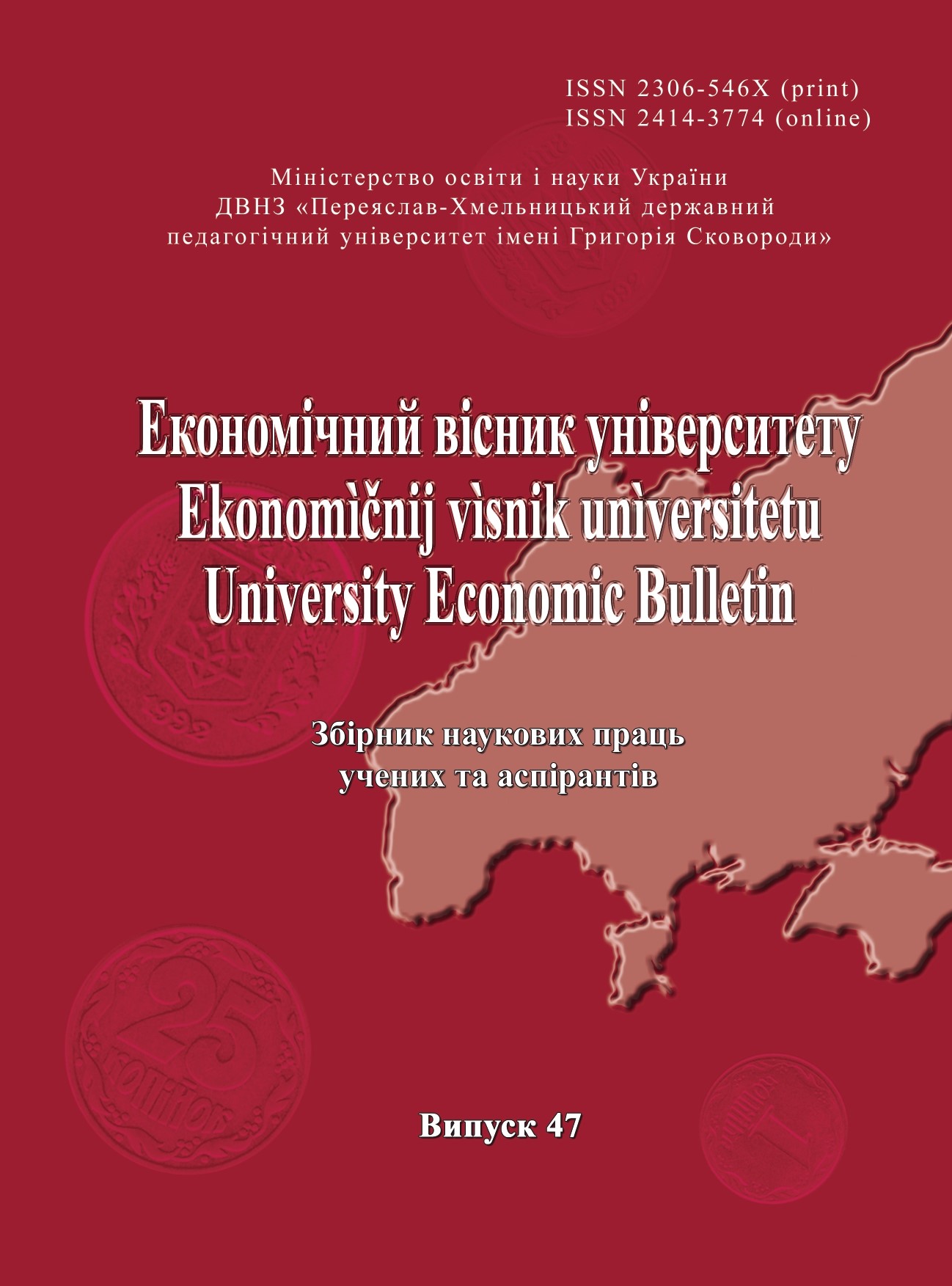Податкове регулювання соціально-економічного розвитку
Tax regulation of socio-economic development
Author(s): Valeriy KoroviySubject(s): Social development, Economic development, Public Finances, Fiscal Politics / Budgeting
Published by: Університет Григорія Сковороди в Переяславі
Keywords: tax regulation; tax policy; taxes; economic development; social stability;
Summary/Abstract: Relevance of research topic. Tax regulation is a key factor in ensuring economic development and social stability through a balance of fiscal and stimulus functions. The sources of accumulation of funds of financial resources are the taxes in various forms, which is provided by the fiscal function. The priority is represented by the formation of strategic goals of tax policy to achieve the goals of public financial management. It is necessary, under the current conditions, to improve the structure of tax revenues of the budget. Formulation of the problem. Further development of provisions for the development of a tax regulation mechanism will provide an opportunity to increase the degree of adaptability of the impact of taxation on the socio-economic environment. Important priorities in the activities of fiscal authorities are to improve the quality of the mechanism of tax administration, improving the model of the state tax risk-management. Analysis of recent research and publications. The development of the mechanism of tax regulation was considered by foreign scholars, in particular, A. J. Auerbach, R. M. Byrd, E. M. Zolt, J. Mehon, A. Laffer, J. Friedman, V. Tanzi. Their work reflects the importance of tax regulation to ensure progressive socio-economic development over the past decades. L. Lysyak, A. Mazaraki, M. Kuzhelev, A. Nikitishin, V. Makogon, L. Sidelnikova, I. Chugunov and other Ukrainian scientists have developed a concept for implementing of the tax policy in Ukraine in the context of economic system transformation. Selection of unexplored parts of the general problem. The mechanism of the tax regulation of socio-economic development needs further research. An important task of the state is to increase the effectiveness of fiscal incentives. The aim of the article is to improve the mechanism of formation and implementation of the mechanism of tax regulation of socio-economic development of the country in terms of structural changes in the financial system. Research methodology. The system approach and the method of comparative analysis, synthesis, logical approach and method of scientific abstraction are used. Techniques of statistical analysis were used in the study of the peculiarities of tax revenues and fees to the State Budget of Ukraine. Results of work. An analysis of the impact of the tax revenues on the dynamics of economic development for the period 2011-2019 was performed. The dynamics and the specific weight of the overpayment of the taxes and fees to the State Budget of Ukraine are studied. The directions of improvement of the system of tax administration are offered. Suggestions for improving the tax regulation mechanism are substantiated. Conclusions. Tax regulation is a very effective lever of influence on the dynamics of economic development and the social stability. At the center of the institutional mechanisms of its implementation is a set of redistributive relations regarding the social product. The development of the provisions for forecasting and planning of the tax policy measures in the context of globalization will provide an opportunity to increase the adaptability of the impact of tax regulation on economic development. In order to improve tax regulation in the formation of budget revenues, it is advisable to improve the quality of forecasting macroeconomic indicators of the country's development and planning of the tax revenues, and to increase the effectiveness of mechanisms for collecting and preventing the growth of tax debt. It is quite important and relevant to ensure a balanced tax policy, which should be based on a systematic approach to the interaction of the components of tax relations, taking into account the principles of fiscal sufficiency, neutrality, stability and cost-effectiveness of taxation.
Journal: Економічний вісник університету
- Issue Year: 2020
- Issue No: 47
- Page Range: 147-155
- Page Count: 9
- Language: Ukrainian

